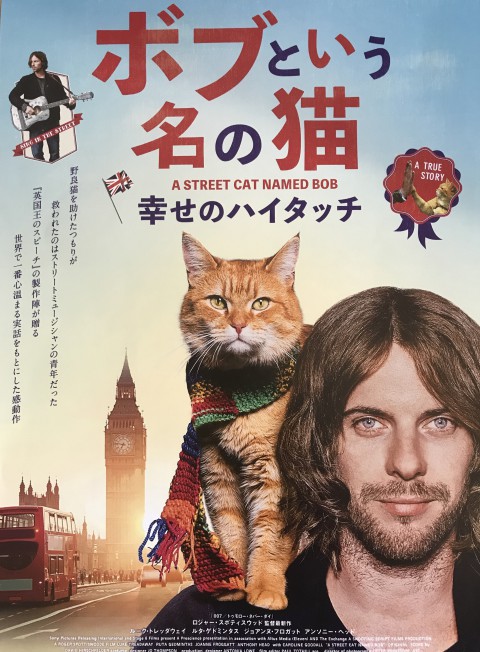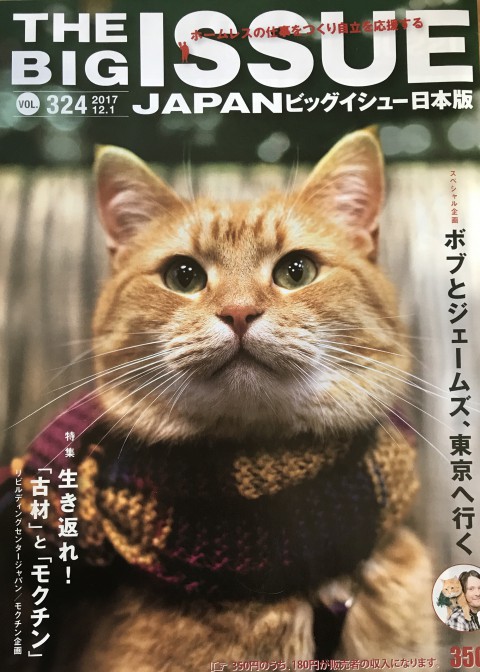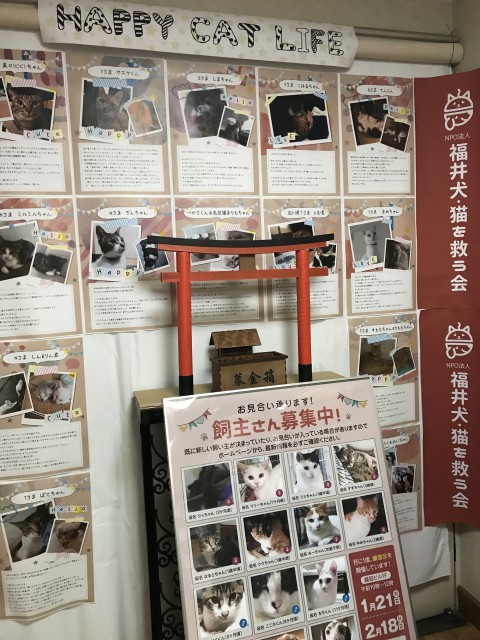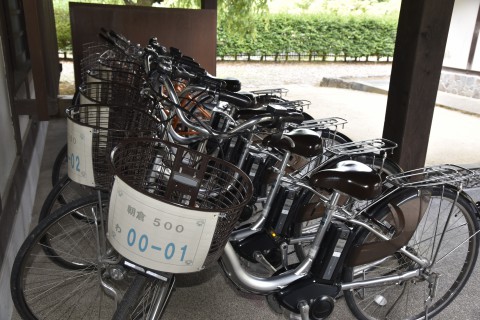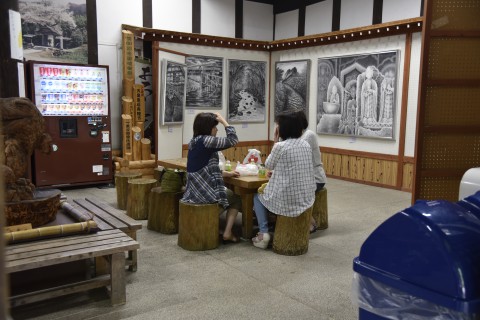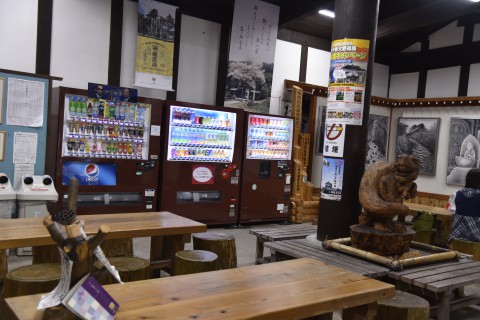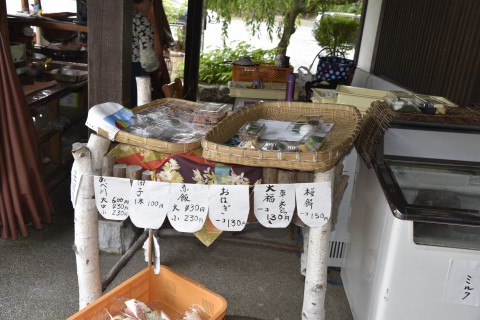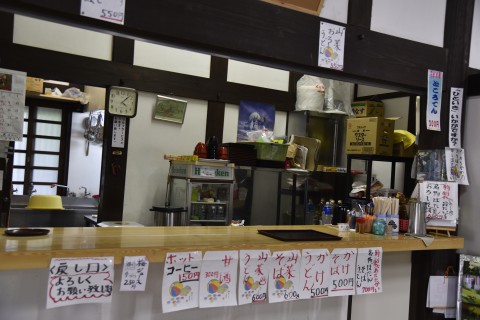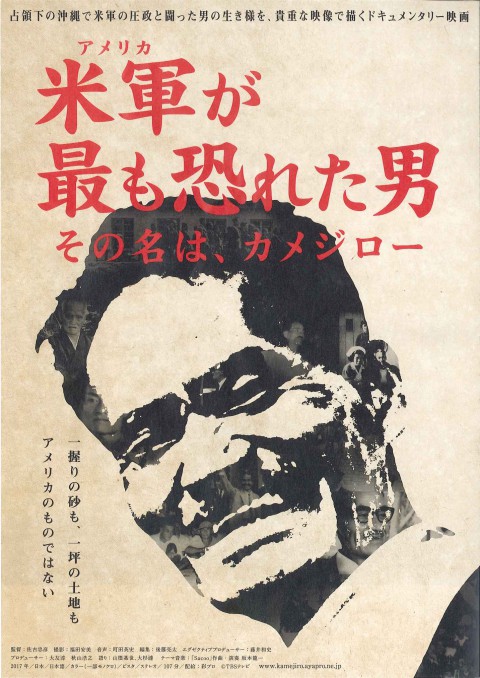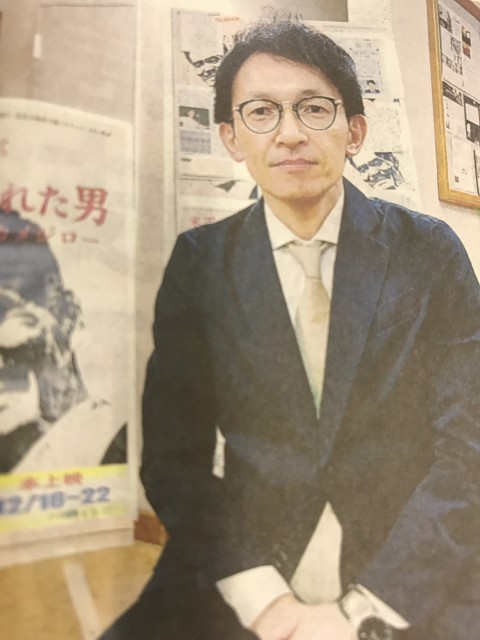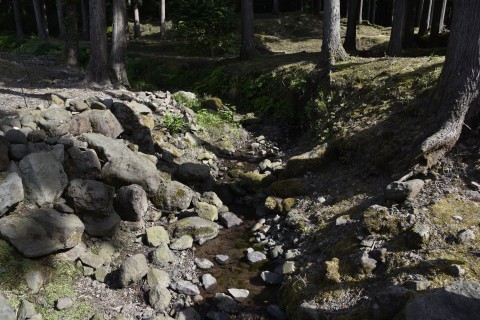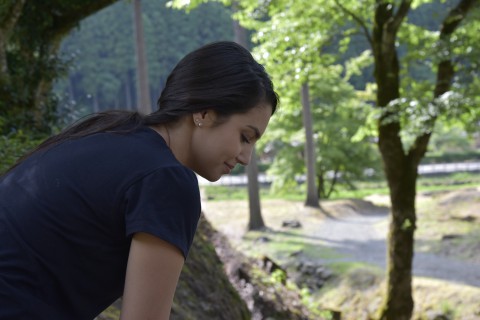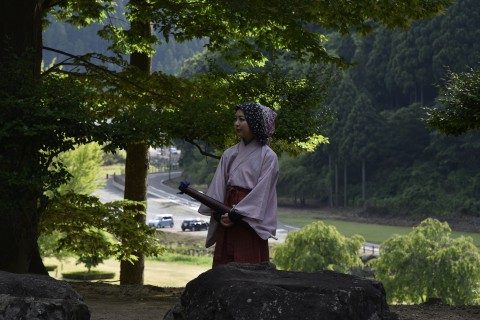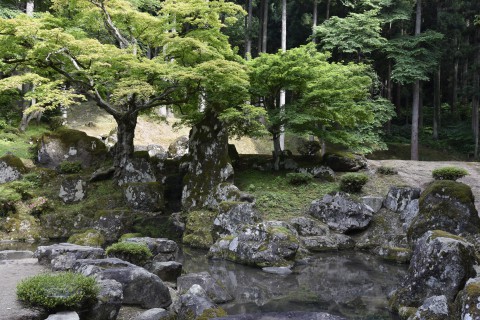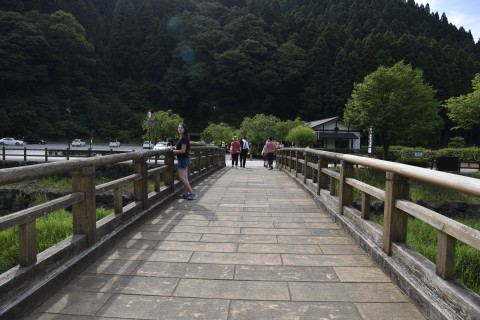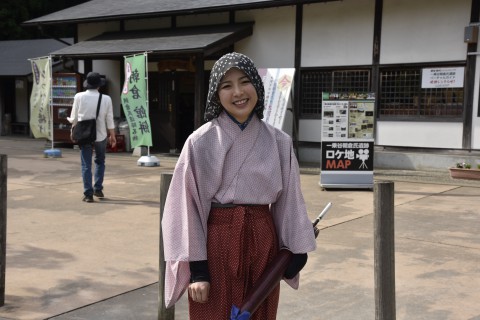Spreading the Charms of Fukui to the World! -Visiting Ichijodani Asakura Clan Ruins Part-10-
2017.12.28
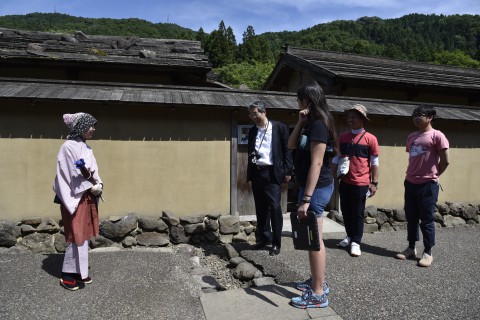
Today’s blog is the last part of the series about Visiting Ichijodani Asakura Clan Ruins. As I have introduced in our previous blogs that I visited Ichijodani Asakura Clan Ruins in June 2017 with the president of the Hotel Riverge Akebono, Mr. Shimizu, the intern of the hotel, Ms. Julia Coslian, the manager of Fukui City Hospitality and Tourism Promotion Office (the information is only available in Japanese), Mr. Takama and his staff member, Mr. Juancho Santamaria. I rediscovered the charms of Fukui. Since today’s blog is the last part of the series, I would like to look back on our tour at Ichijodani Asakura Clan Ruins and the charms of it, and Fukui.
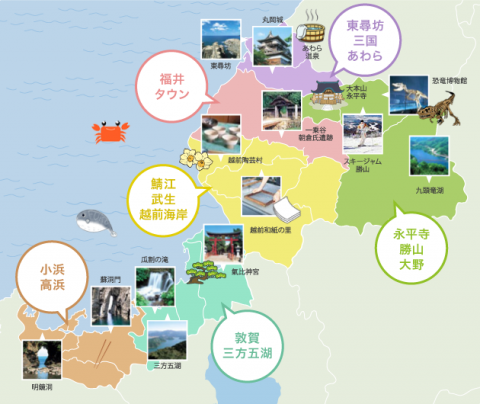
I rediscovered the charms of Fukui. One of the great charms of Fukui is the food. You can enjoy the variety of fresh foods from the Sea of Japan, rivers, mountains and farms through out the year. If you like drinking sake, you can definitely enjoy it as well. Because Fukui has crystal clear water from the largest river in Fukui called Kuzuryu river and famous brewery rice called “Gohyakumangoku”, “Yamadanishiki”, so we have several great sake breweries. At Ichijodani Asakura Clan Ruins, since the whole area is surrounded by rich nature so you can feel calm and relaxed while you are learning about the history of Warring States Period.
In Fukui, besides Ichojodani Asakura Clan Ruins, there are many other places that are very interesting and attractive to visit.
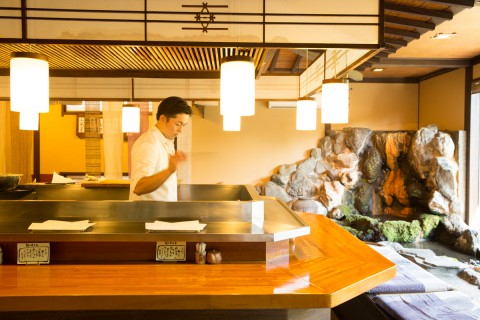
Source: Photographs of the restaurant, from the photo gallery of the official website of Tempura Yaguruma(the website is available only in Japanese).
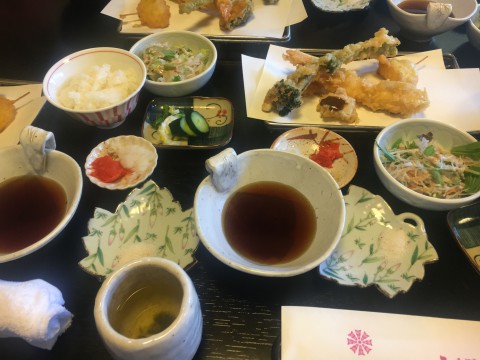
Before heading to Ichijodani Asakura Clans Ruins, we had lunch at the tempura restaurant, "Tempura Yaguruma" (the website is available only in Japanese) which is a popular tempura restaurant in Fukui.
As the chef finished cooking in the middle of the restaurant, the freshly made tempura, which was crispy and hot, was served with Miso soup (the taste of the soup was amazing), Japanese pickled vegetables and freshly cooked rice. It was free refills on the rice. We enjoyed our lunch so much.
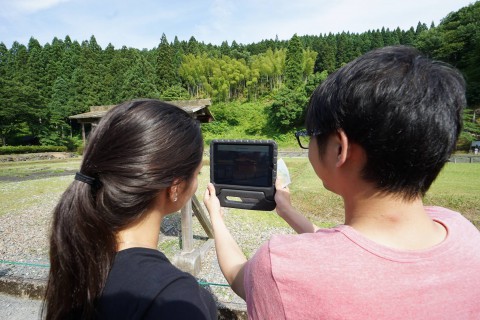
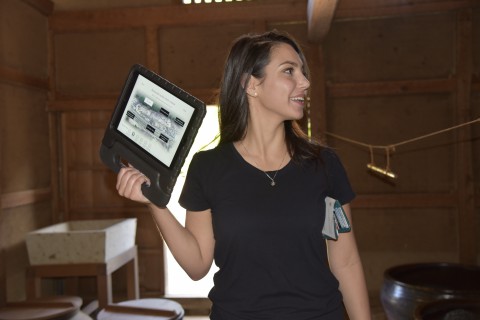
At the information desk of the Ichijodani Asakura Clan Ruins, visitors can borrow an iPad to use throughout the area, which shows how things were built during the Warring States Period in Japan. English versions of the iPads are also available, so visitors from overseas can enjoy this place and its history. It was new and exciting for me to see iPads were used at places of natural beauty and historical interest. No one could imagine high-technology products would be used at any historical sightseeing places about 10 years ago.
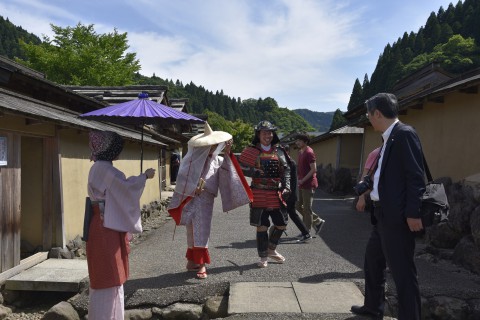
Mr. Takama and Julia participated in the Kimono Dressing experience. As they finished getting dressed, they walked through a replica of the town from the end of 15th and 16th centuries. Julia said that she felt as she had stepped back in time to a Warring States Period.
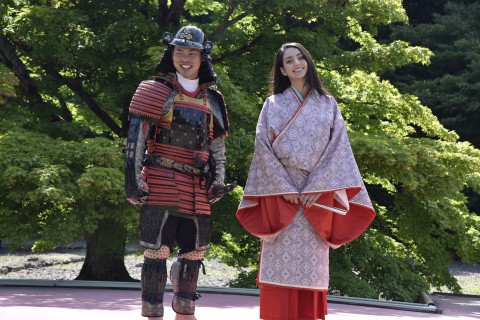
Julia and Mr. Takama enjoyed walking around in their Kimono and armor as if they were in the time of Warning States Period.
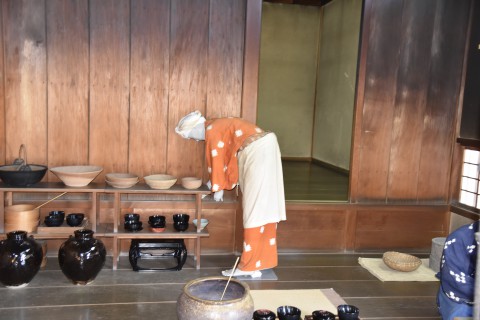
Inside of the restored houses, you can see how people used to live from 1471 to 1573 in the area.
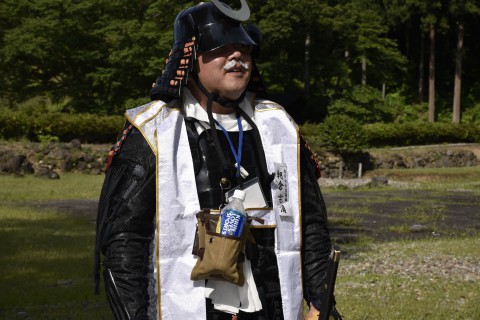
It seems like once people found Ichijodani Asakura Clan Ruin their favorite place, they keep visiting every time they have a chance. The man in the photograph above is one of them. He fell in love with the charms of Ichijodani Asakura Clan Ruin and he moved from Osaka to Fukui. He is there as a volunteer whenever he has time.
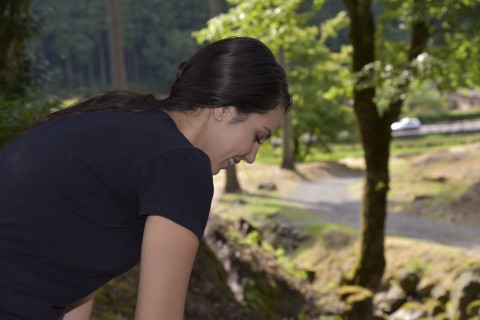
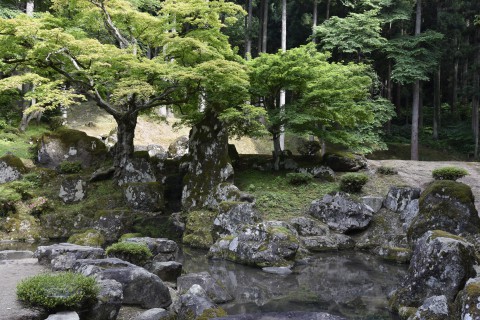
Suwayakata-ato Garden was made by the 11th leader of Sengoku period Asakura family, Asakura Yoshikage to please his concubine. As you can see, his concubine lived in such a beautiful atmosphere which is surrounded by the rich nature. The garden and the area around it has the crisp and clear air which is very soothing. I was feeling much more uplifted and more energetic than when I arrived at Ichijodani Asakura Clan Ruins.
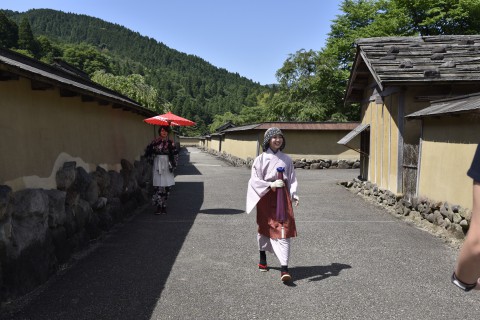
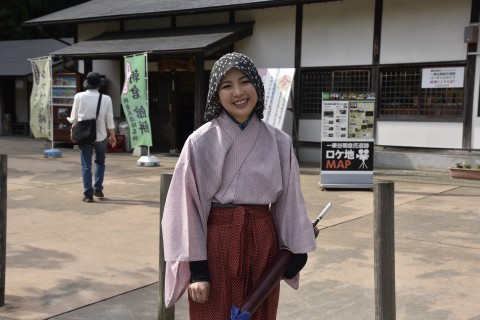
I myself think it is best to visit actual places like this and not simply read from books or watch TV to understand the charms of such places. I also think that the Fukui accent and dialect, which sound relaxing, are an important part of Fukui’s charm.
In conclusion, I rediscovered that the charms of Fukui are the foods from the the Sea of Japan, rivers and mountains, sake made with the clean water from the largest river in Fukui, and Fukui accent and dialect. It is enjoyable and soothing that you can become more uplifted and more energetic in Fukui for sure. Moreover, at Asakura Clans Ruins, you can learn about the history of Warring States Period and enjoy the rich nature at the same time. If you have a chance how about visiting Ichijodani Asakura Clans Ruins?
T.F
Please enjoy our previous blogs as well.
Spreading the Charms of Fukui to the World! -Visiting Ichijodani Asakura Clan Ruins Part 1-
Spreading the Charms of Fukui to the World! -Visiting Ichijodani Asakura Clan Ruins Part 2-
Spreading the Charms of Fukui to the World! -Visiting Ichijodani Asakura Clan Ruins Part 3-
Spreading the Charms of Fukui to the World! -Visiting Ichijodani Asakura Clan Ruins Part 4-
Spreading the Charms of Fukui to the World! -Visiting Ichijodani Asakura Clan Ruins Part 5-
Spreading the Charms of Fukui to the World! -Visiting Ichijodani Asakura Clan Ruins Part 6-
Spreading the Charms of Fukui to the World! -Visiting Ichijodani Asakura Clan Ruins Part 7-
Spreading the Charms of Fukui to the World! -Visiting Ichijodani Asakura Clan Ruins Part 8-
Spreading the Charms of Fukui to the World! -Visiting Ichijodani Asakura Clan Ruins Part 9-
You can see some tourist attractions and the directions to these places from the webpage, "Hotel Reiverge Akebono, Tourist attractions around our hotel".
Made by Julia during her internship, this webpage has directions that are easy to follow.
She researched these tourist attractions, before visiting them and experiencing
the charms of Fukui herself. As I mentioned in our previous blog, it can be difficult for tourists
to get to some great places in Fukui, so this map that Julia made will help you
get around easier.
There is also a Japanese version of this webpage(only available in Japanese).
However, some of the places which are introduced on the Japanese webpage
are different to the English version that Julia made.


